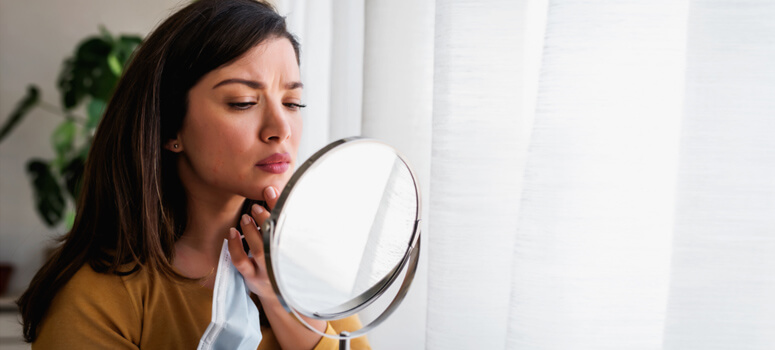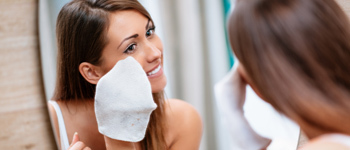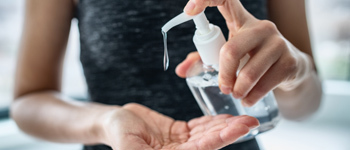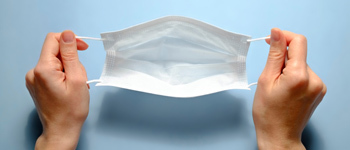The waves of challenges that the novel coronavirus has introduced into people’s lives are unimaginable, to say the least. A whopping 174 million people have been affected by COVID-19 so far.The only way to keep this deadly pandemic at bay is to constantly use masks and sanitizers and maintain distance. Sadly, these preventive measures can lead to skin problems like dryness, acne, and infections.
It’s necessary to not only take our health seriously during the global pandemic but also to love and nurture our skin to help find its lost glory. To help you with the process, we have curated some of the skin manifestations of COVID-19 and the suitable skincare tips for each one of them.
Maskne
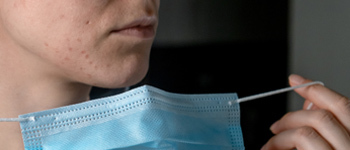
Wearing a face mask for long periods of time can result in comedones or papules on the chin, cheeks, and bridge of the nose. These parts fall directly under the contact and pressure of the mask and are most likely to be affected. Another sign that you have this type of acne is if you experience symptoms like an itching sensation and oily skin.
-
- How to Avoid Maskne
-
-
- Try reducing the time of mask-wearing. If you must wear a mask at all times due to your job, add two layers of gauze inside the mask.
- If your skin type is oily, you need to gently wipe your face 3-4 times a day with a wet wipe or paper towel. This will prevent oil from clogging the pores of the skin.
- Be sure to wash your mask frequently.
- Treatment of Mask-Related Acne
-
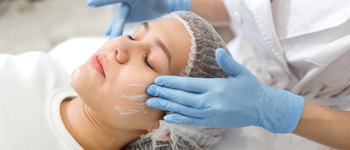
Additionally, doctors may recommend combined oral medications, which like topical retinoids, will help treat inflammatory and non-inflammatory acne.
Contact Dermatitis
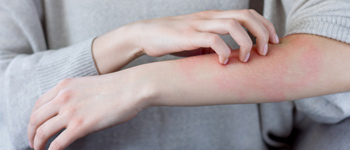
Contact dermatitis increased during the pandemic due to the increased and constant use of sanitizers. As per a survey, 82.6% of the participants reported symptoms of Irritant Contact Dermatitis (ICD).
You can conclude that you have contact dermatitis if your hands show the following signs:
- Dry, flaky skin
- Burning sensation
- Superficial cracks all over your palms
- Bleeding
- Blisters
- Redness stopping at the wrist
-
- How to Avoid Contact Dermatitis
-
-
- Use hand sanitisers containing moisturizers as recommended by the American Contact Dermatitis Society (ACDS).
- If you use chlorhexidine, chloroxylenol, triclosan, or detergent-based hand sanitisers, replace them with alcohol-based hand sanitisers. They are safer because of their lesser lipid-dissolving effect.
- Moisturize your hands with emollients after using soap to alleviate the dryness.
- Avoid harsh rubs when sanitizing and opt for gentle wipes instead.
- Treatment for Contact Dermatitis
-
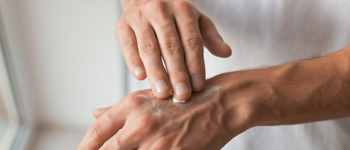
If you suffer from extreme contact dermatitis, oral corticosteroid therapy may be suggested.
Hyperpigmentation
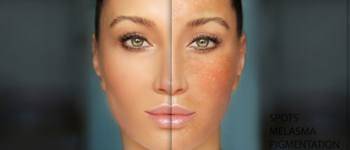
But did you know that these increased levels of digital exposure can also be a potential skin problem?
Electronic gadgets are an indoor source of blue light. When your face is exposed to high or concentrated levels of this light, it can lead to redness, skin ageing, and hyperpigmentation.
Hyperpigmentation is characterised by discoloured patches of skin on your face or hands due to excessive melanin production. The condition essentially leads to an uneven skin tone and dark spots.
-
- How to Avoid Blue Light Hyperpigmentation
-
-
- The most common step is to moderate the use of digital gadgets as much as possible. You could also install a blue light filter app or lower the brightness of your monitor when working.
- Use mineral sunscreens or moisturizers to protect your skin against blue light.
- Apart from computer and phone screens, you can also change your standard LED bulbs to blubs that emit less blue light.
- Treatment of Blue Light Hyperpigmentation
-
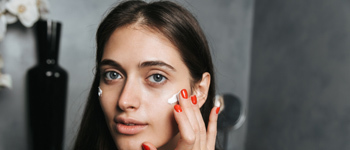
Dermatophytosis
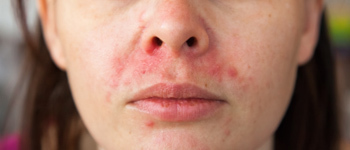
Face masks can lead to increased sweating around your mouth and nose, inadvertently creating a humid microenvironment for fungi to grow. This manifests as pink and red rashes in a ring shape on the affected areas. You may also experience itching or an intense burning sensation when out in the sun.
If you experience these symptoms, you should consult a dermatologist to confirm whether you have ringworm.
-
- How to Prevent Dermatophytosis
-
-
- Always clean your face mask after use.
- Facial ringworm is just as contagious as COVID-19, so never share your mask with another person.
- Keep the area around your mouth and nose dry.
- Treatment for Dermatophytosis
-
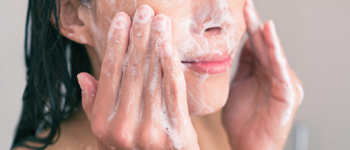
In Closing
Yes, the continued use of masks and sanitizers is causing skin problems. But it’s the only solution we have for now to successfully battle COVID-19 and protect ourselves and our loved ones.
That said, following these protective measures does not mean robbing your skin of the attention and care it deserves! With the skincare tips mentioned here, you can keep your skin healthy and prevent COVID-related skin issues from occurring.
For more information on treating your skin with care or to talk to a certified dermatologist, visit Skin & Hair Academy today.

